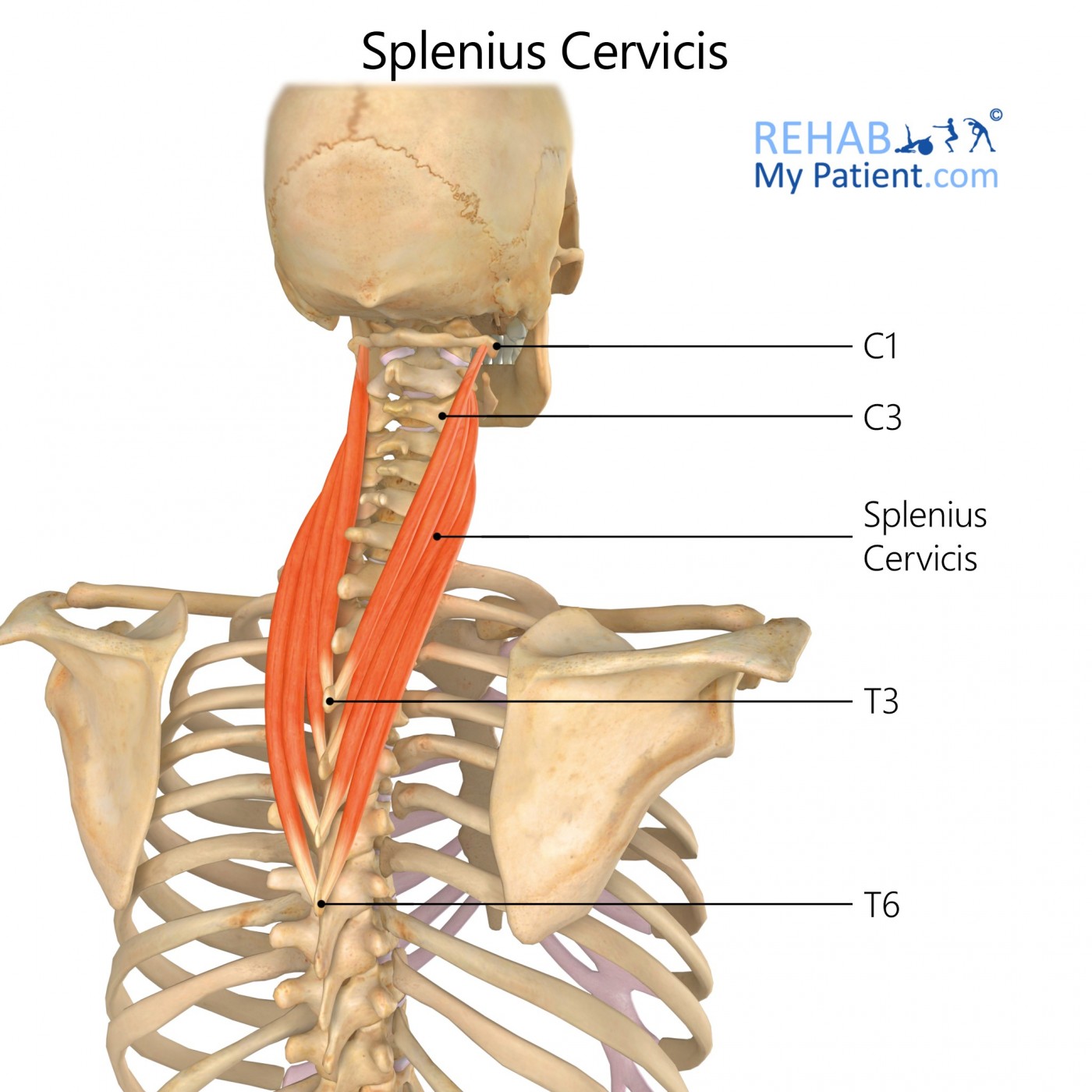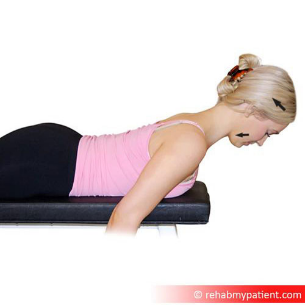Splenius Cervicis
Opublikowano dnia 29th Jul 2020 / Opublikowano w: Szyja

General information
The Splenius cervicis is a muscle found in the back of the neck. This muscle rises by a narrow tendinous band out of the spinous processes from the third to the sixth thoracic vertebrae. The muscle is inserted from tendinous fasciculi and into the posterior tubercles out of the transverse processes for the upper two to three of the cervical vertebrae. Its function is to extend the cervical spine, rotate to the ipsilateral side and flexion to the ipsilateral.
Literal meaning
A patch or plaster of the neck.
Interesting information
Pain radiating from the upper back all the way up to the neck at the base of the skull is often associated with an injury to the splenius cervicis. If the individual begins experiencing an aching throbbing pain that begins at the back of the head and goes all the way through to the back of the eye, it could be the direct result of an injury to the splenius cervicis. Migraine headaches tend to plague those who have injured this muscle. Beyond just the headache, blurred vision also occurs with the injury. Numbness or pressure found in the back of the head is also a symptom of this type of injury.
Origin
Spinous processes of T3-T6.
Insertion
Posterior tubercules of the transverse processes of C1-C3.
Function
Extension of the neck bilaterally.
Flexion of the neck laterally.
Nerve supply
Dorsal rami of the cervical spinal nerves C5-C8.
Blood supply
Muscular branches extending from the occipital artery out of the external carotid artery.
Dorsal branches extending from the posterior intercostals arteries out of the thoracic aorta.

Relevant research
The splenius capitis and splenius cervicis muscles can both be responsible for the onset of a chronic tension type headache. This study investigated the intramuscular nerve distributions that are involved in this process, in order to recommend the best spots for botulinum toxin injection.
Kwon, H. J., Yang, H. M., & Won, S. Y. (2020). Intramuscular innervation patterns of the splenius capitis and splenius cervicis and their clinical implications for botulinum toxin injections. Clinical anatomy (New York, N.Y.), 10.1002/ca.23553. Advance online publication.
Splenius cervicis exercises
Neck extension over bench
Lying face down with your head hanging over a bench, keep your chin tucked, and hyper-extend your neck by taking it above the horizontal. You will feel the muscles at the back of your lower neck contracting. This serves as a useful strengthening exercise for your neck.

Chin-to-chest
The chin-to-chest exercise will stretch the muscle while using the upper back muscle and the deltoids to stabilize the muscles. Sit on a chair and let the head drop forward as much as possible. Place one or both hands on the head so the fingertips are touching the skull bone. Exhale and apply pressure gradually to deepen the stretch in the back of the neck. Hold the position for a couple minutes. Perform one to four repetitions with the head rotated to the left and four rotated to the right holding every position for a couple minutes.
Zapisać się
Zarejestruj się już teraz, aby skorzystać z bezpłatnego okresu próbnego!
Zacznij korzystać z Rehab My Patient już dziś i zrewolucjonizuj proces przepisywania ćwiczeń, aby zapewnić sobie skuteczną rehabilitację.
Rozpocznij 14-dniowy bezpłatny okres próbny